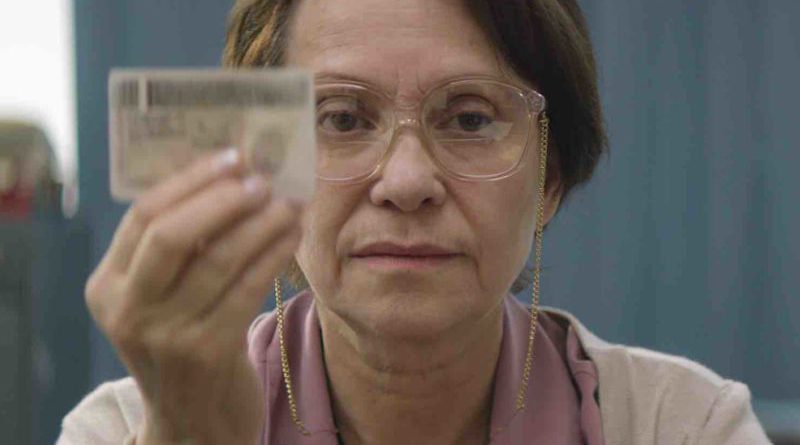INTERVIEW: Natalia Almada moves into fiction for her new film
Photo: Adriana Barraza stars as Doña Flor in Everything Else (Todo lo Demás), now playing. Photo courtesy of Cinema Tropical / Provided with permission.
Celebrated documentarian and MacArthur “Genius Award” fellow Natalia Almada has moved into the fictional realm for her new project, Everything Else (Todo lo Demás), a film that follows a 63-year-old bureaucrat living in Mexico City. The movie, which recently premiered in New York City and played the festival circuit, stars Adriana Barraza, an Oscar nominee for Babel.
Barraza plays Doña Flor, a woman who has endured a difficult and sometimes mundane profession for decades. When she’s finally fed up with the government office she has dedicated herself to for so long, Flor heads to the local pool to find meaning and peace.
Recently Hollywood Soapbox spoke with Almada about the film, which is being presented in the U.S. by Cinema Tropical. Here’s what she had to say:
On her inspiration for creating Everything Else …
“Well, there are a lot of inspirations. On the one hand, I had made a film about violence prior to Todo lo demás called El Velador. It looked more at … violence in Mexico, so I was interested in continuing to research violence and kind of on the theoretical side. I was interested in this idea about bureaucracy as a form of violence. At the same time, I was swimming in a pool … where a lot of retired women who had worked at Mexico’s IRS swam, and so watching them and seeing how fleshy they were and alive at the pool, I could see how I had never seen those women. When I would encounter them as some office functionaries, I wouldn’t see them. They have this internal vivacity.”
On the experience of working with Barraza …
“The producers that I started the film with … [were] a personal contact [with Barraza], but we reached out to her really early in the process. And so for a couple of years she kind of followed the writing. I would send her the text that I was writing or the script once I was writing in script form, so she had a lot of time to really develop the character, which I think was a huge advantage in the long run.”
On whether the character of Flor changed during the development stage …
“I don’t think she changed that much. I think one of the things that was very clear to me writing the script was the nature of the character, and a lot of the writing was actually like making a documentary, observing this character in a fictionalized [sense], but still kind of observing her mundane everyday life and her gestures … What was more challenging for me with the script was building in clearer plot lines so that you could have a little more narrative to hold on to.”
On making the transition from documentary to fiction …
“I think it was hard for me personally. I’m used to having an idea and then kind of picking up my camera and going to shoot it, so having to write for a long time [to] convince people that my project was worth financing before I could shoot a single frame of film, that was hard for me. Also working with a lot of people was hard. I made El Velador essentially by myself. I did camera and sound, so suddenly having a crew that I had to communicate with was challenging.”
On the filming locations …
“It’s all shot in Mexico City. We wanted to choose real locations as much as possible, so the subway is the subway. And the pool where we shot is the pool that I used to swim at with a lot of the women who I encountered there. The apartment is just an apartment building. We rented a place for a week.”
On the funding of the film through government grants …
“In Mexico, the funding is very different because we have government money, so I wasn’t looking at a model like an independent film in the U.S. might, looking for [investors]. … You have a lot of liberty in terms of creative freedom. You can make riskier films that aren’t dependent on the box office. I think in the States, even if you tell your investors, ‘Oh, my film is a very risky investment,’ the investors ultimately want to get a return on their money. And the more money a film makes, the more successful it is. So I find that working in Mexico, the way the movies are judged is very different. A film that has a festival premiere, that’s hugely successful in and of itself.”
By John Soltes / Publisher / John@HollywoodSoapbox.com
Everything Else (Todo lo demás) is currently playing in movie theaters. Click here for more information.

